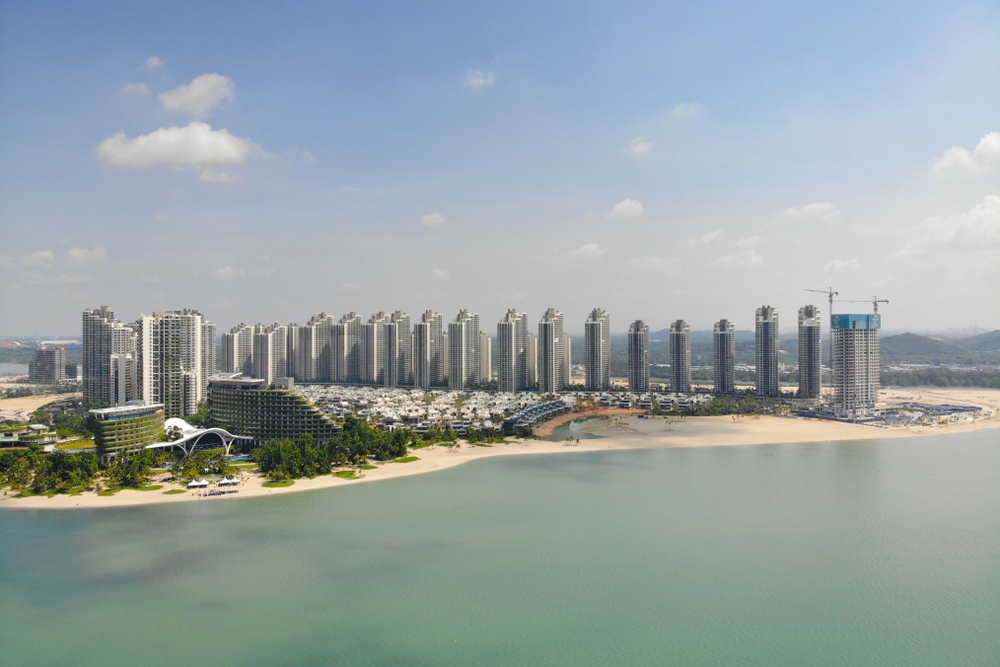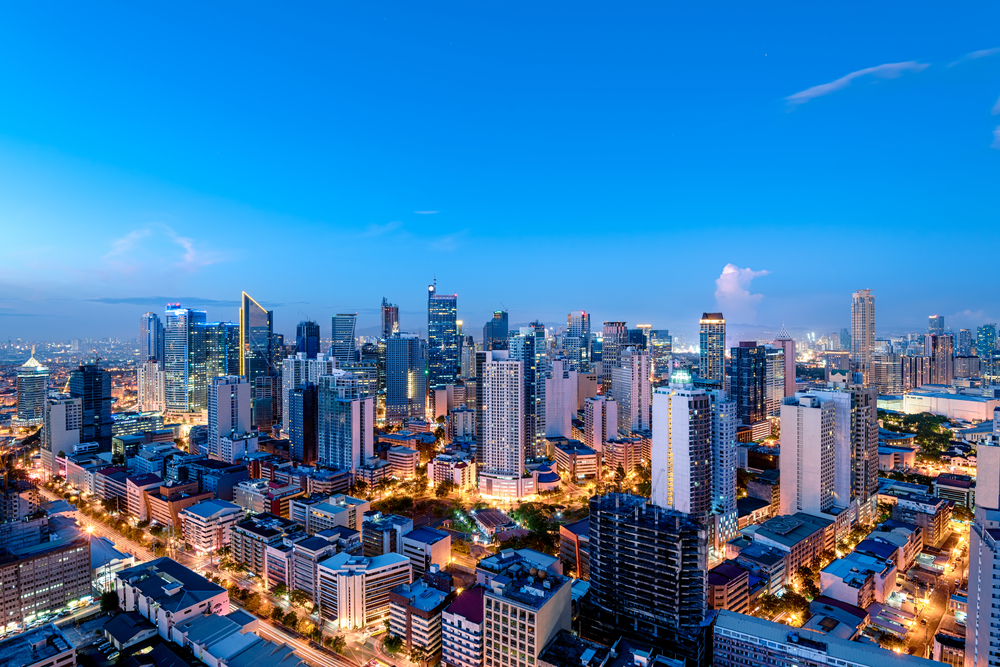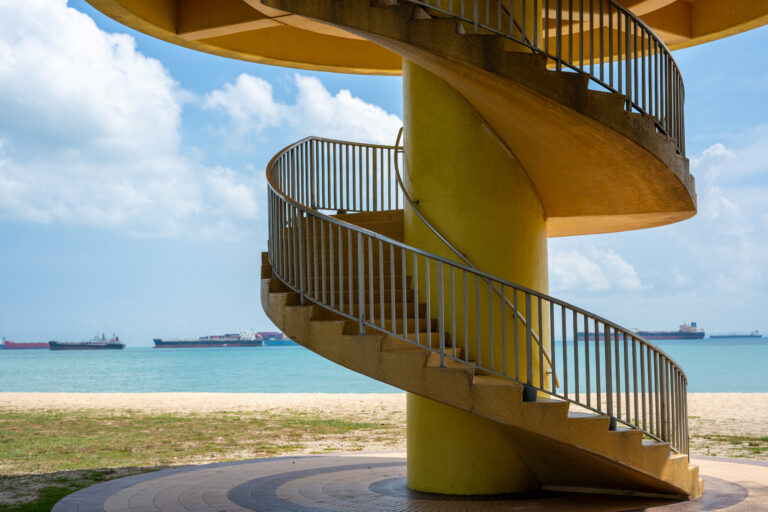Southeast Asia feels the ripple effects of China’s property market crisis
Struggling real estate sectors around Southeast Asia are showing signs of contagion from China’s ongoing property market crisis

In late August, after news reports said its sprawling Forest City development in Malaysia appeared “deserted”, Chinese developer Country Garden issued a statement reassuring investors amid mounting debt concerns.
“Our company’s projects in Malaysia are operating normally and the sales performance is strong,” it said in a statement.
Two months later, after further delays in making dollar interest payments on its offshore bonds, Country Garden’s default was “all but official”, according to Bloomberg.
The company’s stock price has lost about 75 percent of its value this year, down from about HKD3 in early January to HKD0.71 in the last week of October, amid losses of USD6 billion during the first half of this year.
Following Evergrande’s default in 2021, Country Garden’s similar debt concerns represented the latest chapter of a Chinese property crisis which until recent months had shown little indication of contagion in the rest of the region.
Whether these impacts extend across Asia will much depend on China’s ability to reverse the recent property market slide. Yet there were still signs of recovery by the start of the fourth quarter.
New home prices in China fell at a slower pace of just 0.2 percent in September, compared to 0.3 percent the previous month following a range of stimulus measures by the government including a lifting of restrictions on home purchases in major cities.
However, analysts at Nomura said China’s property downturn is yet to reach the bottom. And ratings agency Moody’s warned in late October that market improvements derived from recent supportive government measures may be short-lived.

“The credit quality of many developers has weakened in the past one to two years amid the property market’s prolonged downturn,” Moody’s said a month after downgrading its rating for China’s property market from stable to negative in September.
“The unclear recovery prospects of contracted sales add further uncertainty for them to restore financial profiles commensurate with their rating levels in the next 12 to 18 months.”
Overall economic data in China has been more encouraging in recent months. The country’s GDP growth increased 4.9 percent in the third quarter compared to a year earlier, according to official data, which was above analysts’ forecasts, prompting Citigroup, JP Morgan, and Morgan Stanley to all raise their full-year growth forecasts to between 5.1 and 5.3 percent.
Although such a low growth rate would have been considered unthinkable by China economists just a few years ago, most analysts had written off any chance of a rebound over five percent until a few weeks ago, given the three percent GDP expansion in 2022 and market difficulties this year.
Risk-averse Chinese have reined in spending on property at home. But that has not necessarily pushed buyers overseas where purchase activity by mainlanders remains mixed at best
Still, Chinese homebuyers remain cautious amid uncertain economic conditions at home and abroad, typified by the most severe recent downturn in the housing market, previously considered a haven for capital among ordinary Chinese.
The response by many in the world’s most populous nation has been a flight away from risky assets towards perceived safety
In 2023, Chinese have saved at rates even higher than last year—when Chinese were already estimated to be the biggest financial savers in the world—with 27 percent of every additional yuan earned being placed in savings accounts and other low-risk instruments, according to a recent survey by the data agency Morning Consult.

So, risk-averse Chinese have reined in spending on property at home. But that has not necessarily pushed buyers overseas where mainland purchase activity remains mixed at best, according to analysts.
Among the drag factors have been concerns over Chinese developers and their projects in the Southeast Asia region, including Country Garden in Malaysia. Also impactful are growing signs of ever stricter capital controls, and enforcement by Chinese authorities.
Chinese investors in the region represent a disguised source of overseas investment that appears to be declining amid more strenuous efforts by Chinese authorities to stop money flowing out of the country, according to a study by the French corporate bank Natixis earlier this year.
In October, domestic Chinese brokerages and their overseas units reported a new measure circulated by authorities by which mainland clients would be “strictly monitored” to prevent bypassing of China’s foreign exchange controls.
Chinese citizens are subject to several restrictions on spending overseas, including a limit of USD50,000 on foreign currency exchange per year which makes it difficult and time-consuming for Chinese to channel funds overseas.
“Capital controls have made it more difficult for most ordinary Chinese residents to take money out for big-ticket purchases, and the trend has only tightened further in recent years, such as a daily cash withdrawal limit,” says Gary Ng, a senior economist at Natixis in Hong Kong.
Increased efforts to curb Chinese outflows of capital by the government have coincided with the sharpest outflow of direct investment capital since early 2016, according to Bloomberg. Relatively low interest rates in China, coupled with enduring high rates in many countries overseas, have encouraged many foreign investors to pull their money from the mainland.
Despite these challenges, some Chinese buyers have started to return to some Southeast Asian markets. Property inquiries for Thailand, still the top destination in ASEAN among Chinese buyers, more than doubled in the third quarter compared to a year earlier, according to a leading overseas Chinese property portal.

Nonetheless, Chinese inquiries for the entire southeast region are still down on 2019 as the number of flight connections between the Chinese mainland and many destinations in Southeast Asia remain below pre-pandemic levels.
The Philippines saw the next biggest jump in Chinese inquiries in Southeast Asia after Thailand with a 43 percent annual increase compared to the third quarter of 2022. Private buyers may be showing greater interest, but there are few signs that inquiries are translating into a jump in Chinese purchases on the ground, both in terms of private and corporate buyers.
Joey Bondoc, associate director of research at Colliers in Manila, noted that Chinese investment sentiment remains delicate in the local market amid an ongoing territorial dispute between the two countries, but added the Philippines remains attractive to mainland buyers—in theory—due to its geographical proximity and favourable rates.
“When you look at viable investment destinations outside of China, the Philippines is one of those because in Asia we still have among the lowest property prices on a per square-metre basis,” says Bondoc. “It’s much cheaper than Singapore or Hong Kong.”
Despite debt concerns associated with Country Garden and its sprawling Forest City development on Malaysia’s border with Singapore, Chinese property inquiries for Malaysia are also on the rise.
It remains to be seen how Country Garden’s default will impact its flagship Forest City development in Johor, and Chinese buying sentiment in Malaysia in general.
In August, Malaysia’s central bank stated the country’s banking sector has limited exposure to Country Garden with less than 0.1 percent of total banking system loans and bonds linked to the Chinese developer. In an apparent effort to preempt knock-on impacts, the Malaysian government has reassigned Forest City as a special financial zone with favourable rates to boost investment.
In late April, the Singaporean government abruptly raised foreign property stamp duty from 30 to 60 percent, in another possible boost to Forest City’s fortunes. The development overlooks the Johor Strait and was conceived in part as a low-priced alternative to Singapore. Many analysts thus believe that Chinese buyers recently priced out of the Singapore market may now look at lower-priced alternatives across the border in Malaysia.

The sudden jump in stamp duty was a key factor behind a 76 percent decline in third-quarter Chinese property inquiries for Singapore, the worst performer in Southeast Asia regarding potential Chinese home purchases.
The new tax hike applies to all nationalities, including Chinese, except those from countries with separate freetrade deals with Singapore, including the United States and Iceland. Many international realtors now consider Singapore among the most expensive markets in the world for private overseas homebuyers in terms of stamp duties and associated taxes.
In a market where 10 percent of deals are made by foreign nationals, China ranked among the top overseas buyers. But in recent months, US homebuyers exempt from the recent stamp duty increase have overtaken those from China, says Aric Lim, an associate director at private real estate agency Hutton’s.
Yet overseas buyers are already finding ways around the tax hike by seeking out commercial rather than residential properties, a category unaffected by the tax increase, says Lim, which in turn has led to a buoyant commercial market at the expense of the residential segment.
“When buyers hear that there’s an additional stamp duty of 60 percent, it is a big amount of money for them, especially if you are buying in the luxury market,” says Lim, who regularly deals with Chinese clients, estimating a 40 percent drop in sales to Chinese buyers. “It may be a knee-jerk reaction to the tax increase. We simply don’t know yet.”
The original version of this article appeared in PropertyGuru Property Report Magazine Issue No. 181 on issuu and Magzter. Write to our editors at [email protected].
Recommended
Why everyone is moving to Selangor and Johor: Malaysia’s real estate comeback
Malaysia’s upturn in fortunes is especially prevalent in secondary destinations such as Selangor and Johor
Penang’s silicon boom: How the US-China tech war is supercharging local real estate
Penang’s booming semiconductor industry has created ripples within the local real estate sector
ARES White Paper Volume 2: Unravelling the power of data revolution in real estate
Insights on proptech, smart cities, and sustainable development
ARES Digital White Paper Volume 1 tackles the fundamentals of responsible building
Green and climate heroes join forces to discuss how Asia Pacific can weather the current environmental crises and the looming effects of climate change







